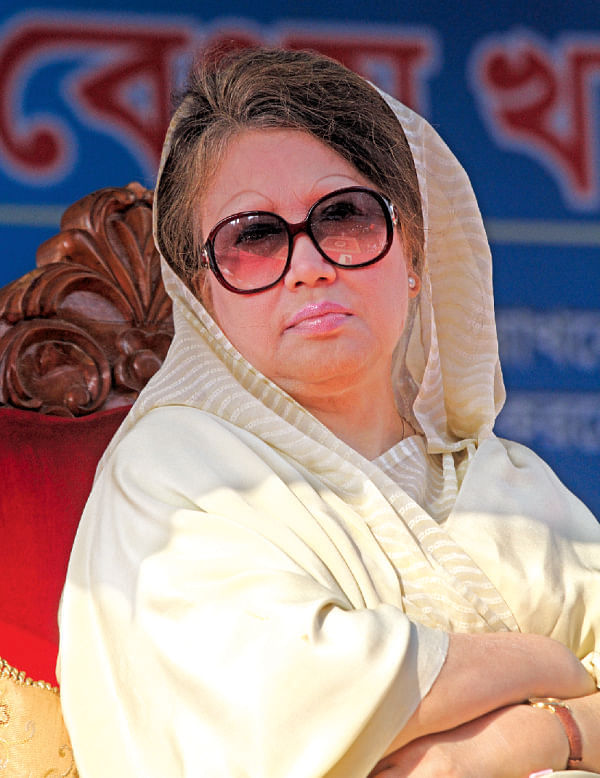The Other Woman

Whatever Happened, Happened
No political party in the world would feel comfortable to face the kind of setback that the Bangladesh Nationalist Party (BNP) has suffered in the last few months. The party, which according to a Daily Star opinion poll enjoys 55 percent popular vote, did not participate in the one-sided election that took place last January. Now that the polls are over, the party, which almost breathed on an electoral victory, now looks sad and dejected.
It is an ideal example of what happens when a party's top leadership fails to read the pulse of the people. Reinstatement of the Caretaker Government (CG) system into the constitution is a hugely popular demand. Independent opinion polls suggest that over 80 percent of ordinary Bangladeshis want a neutral non-party government during the election to create the level playing field necessary for a free, fair and inclusive election. Yet Khaleda Zia and her Bangladesh Nationalist Party have miserably failed to include the ordinary people in its movement for the CG.
What the party did eerily resembles of what the Awami League had done in 1996. At that time, the AL, along with Jatya Party and Jamaat-e-Islami (JI), had launched a violent movement to force the BNP to change the constitution to introduce the provision for CG, as the AL thought the results of an election held under the BNP government would not reflect the will of the people. The AL led opposition parties had boycotted the February 15 election in 1996, declared one blockade after another that brought the country's economy to its knees. Even though the BNP was successful in holding a one-sided election, it bowed down before the street agitations and passed an amendment to the constitution that introduced the provision of CG.
But, the same old formula of street agitation did not work this time round. There is no denying that the AL government at its fag end in 2013 enjoyed a lot less popular support than its BNP counterpart in 1996. But the BNP's failure to incorporate the masses in its movements has failed to stop the January 5 election from being held. It also exposes the BNP leadership's lack of brinkmanship. When the time to show its strength came, most of its leaders in Dhaka either went into hiding or did not even show the courage to come out into the streets in its ill-fated March for Democracy programme. It fell flat, and along with it went the party's chance of resisting the election, which eventually took place this January.
Further Instructions
Khaleda Zia and her party need to do a lot of soul-searching before it decides on its next course of action. To begin with, the party needs to clean its fold of the corrupt and criminal leaders and workers. It also needs to focus on its student wing and encourage meritocracy instead of nurturing criminals in the rank. It is indeed sad that Jatiotabadi Chatra Dal, which was one of the vanguards of anti-Ershad movement, is led by 'students' who have gone past their middle age. The BNP's highest policymaking body, too, does not have many leaders who are ready to take the trouble of knowing the ground reality.
Despite the setbacks, the BNP, which enjoys a huge support among the masses, needs to set an agenda for talks with the government. It should give the modalities of its relationship with the JI a second thought. It will be good for the BNP if it shuns politics of violence and can devise a way of protest. To survive, the BNP will also need to make its politics appealing to the young generation. The path ahead is surely not rosy. Only time can tell if the BNP leadership has what it takes.

 For all latest news, follow The Daily Star's Google News channel.
For all latest news, follow The Daily Star's Google News channel. 



Comments